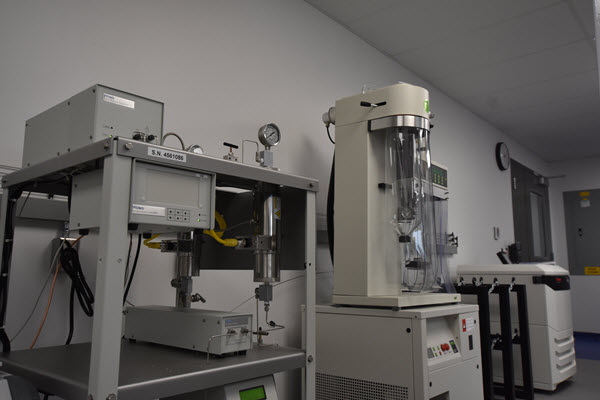The Centre for Research Innovation at Fanshawe College has been granted a licence to conduct research on cannabis products, and will be focusing on edible product development
By Jackie Clark
Staff Writer
Farms.com
Fanshawe College’s Centre for Research and Innovation (CRI) has been granted a cannabis research licence and will now contribute to developing safe and effective cannabis products. The licence “will enable Fanshawe to apply research expertise in food science and waste management to the cannabis industry,” a Jan. 21 Fanshawe release said.
Applying for the licence “was a very rigorous process,” Dan Douglas, dean of the CRI, told Farms.com.
“We had to demonstrate that we had strengths in institutional security and our capacity and capability to actually conduct the research using cannabis and cannabis byproducts,” he said.
Completing the application took three months, and it was reviewed by Health Canada, who controls cannabis licensing, for another ten months, Douglas explained.
Now that the licence has been granted, research projects that were in the planning stages can begin.
“There’ll be certain types of training on new pieces of equipment that we have in the lab specifically for cannabis products,” Colin Yates, chair of the CRI, told Farms.com.
The college received funding through the Canada Foundation for Innovation and Ontario Research Fund to purchase lab equipment for cannabis research, he explained.
“The main piece of equipment we’ll be using is something called CO2 bioextraction. This allows us to take out particular chemicals and oils from cannabis, so we can use (the extracted product) in edible products, beverages, or purify (the extract) further,” Yates said.

Researchers will use specialized equipment to extract and purify cannabis byproducts to be used in edibles and beverages.
Research will be conducted in Fanshawe’s Centre for Applied Research and Innovation in Biotechnology (CARIB) lab, and will focus on product creation, specifically edibles.
The CARIB “lab also has capacity to look at plant and soil health, although that probably won’t be our primary focus with cannabis,” Douglas said.
“We do have the ability to grow things, but that will be on a very small scale,” Yates explained. “The focus will be helping those emerging companies in the edible and beverage space.”
There will also be some research “on the waste side as well because there’s a lot of crossover there. There’s going to be a lot of waste generated from the new processing of cannabis,” he added.
But the primary focus of the research at Fanshawe will be connecting cannabis to “food and innovation,” Douglas said.
The institution is “really driving into the food and beverage market and helping those companies. There are not many resources available for emerging companies to get access to this type of technology. What I mean by access is guided use through our staff to actually do that product development for them. That’s very limited within Ontario,” Yates said.
The staff and faculty at the CRI hope “to provide that service that’s lacking, especially in the London area where there’s very much a growing food and entrepreneurial spirit,” he added.
Response to the announcement of the licence acquisition has been positive, both from Fanshawe researchers and the broader community.
“The faculty and staff that are connected to research are excited to get started with some projects,” Douglas said. “There’s also some excitement about contracting new partners to the institution.”
“There’s been a great social media response,” added Yates. “We’re new to the space but clearly there’s excitement about the potential.”
Fanshawe College photo